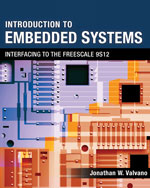.
There will be a signup for lab checkout times. Lab partners need to
be enrolled in the same lab section. Each student or team of
students will have a specific checkout time during their lab
section, which will be when their lab will be demonstrated to their
TA. You can only switch lab sections using official add/drop
procedures.
Homework Assignments
There will be approximately one homework assignment each week
involving programming in assembly or C. Homeworks will be submitted
online through Blackboard. You may work in groups and discuss
homework problems with others, but every student has to
independently develop his own, separate homework solution. Late
homework submissions will not be accepted under any circumstances.
Academic Dishonesty
"Faculty in the ECE Department are committed to detecting and responding to all instances of scholastic dishonesty and will pursue cases of scholastic dishonesty in accordance with university policy. Scholastic dishonesty, in all its forms, is a blight on our entire academic community. All parties in our community -- faculty, staff, and students -- are responsible for creating an environment that educates outstanding engineers, and this goal entails excellence in technical skills, self-giving citizenry, an ethical integrity. Industry wants engineers who are competent and fully trustworthy, and both qualities must be developed day by day throughout an entire lifetime. Scholastic dishonesty includes, but is not limited to, cheating, plagiarism, collusion, falsifying academic records, or any act designed to give an unfair academic advantage to the student. The fact that you are in this class as an engineering student is testament to your abilities. Penalties for scholastic dishonesty are severe and can include, but are not limited to, a written reprimand, a zero on the assignment/exam, re-taking the exam in question, an F in the course, or expulsion from the University. Don't jeopardize your career by an act of scholastic dishonesty. Details about academic integrity and what constitutes scholastic dishonesty can be found at the website for the UT Dean of Students Office and the General Information Catalog, Section 11-802."
You are encouraged to study together and to discuss information and concepts with other students. You can give "consulting" help to or receive "consulting" help from such students in oral form. However, this permissible cooperation should never involve one student having possession of a copy of all or part of work done by someone else, in the form of an email, an email attachment file, a portable storage device, or a hard copy. Copying of any part of a program is cheating without explicit reference to its source. We do enter lab and homework assignments turned in by EE319K students through a plagiarism checker, comparing them to assignments of this and previous semesters. If we find two programs that are copied, there will be a substantial penalty to both students, e.g., failure in the course. Students who cheat on tests, homeworks or in lab will fail. Prosecution of cases is very traumatic to both the student and instructor. It is appropriate to use software out of the book, class website as long as all copy-pasted software is explicitly referenced. Copy-pasting software from current or past EE319K students is scholastic dishonesty.
Policies concerning the use of other people's software in this class:
- I strongly encourage you to study existing software.
- All applications and libraries must be legally obtained. E.g.:
- You may use libraries that came when you bought a compiler.
- You may use software obtained from the web.
- You may copy and paste from the existing source code.
- You may use any existing source code that is clearly referenced and categorized:
original: completely written by you,
derived: fundamental approach is copied but it is your implementation,
modified: source code significantly edited to serve your purpose,
copied: source code includes minor modifications.
University Honor Code
"The core values of the University of Texas at Austin are learning, discovery, freedom, leadership, individual opportunity, and responsibility. Each member of the University is expected to uphold these values through integrity, honesty, trust, fairness, and respect toward peers and community." (see the university catalog)
Add/Drop
The 12th class day is Wednesday, February 1, 2012. The drop policy has recently changed. See your academic advisor or the Dean of Students for more information.
Course Evaluations and Final Exam
Course evaluation is conducted on the last class day in accordance with the Measurement and Evaluation Center form. The final exam is at the time and place stated in the course schedule.
